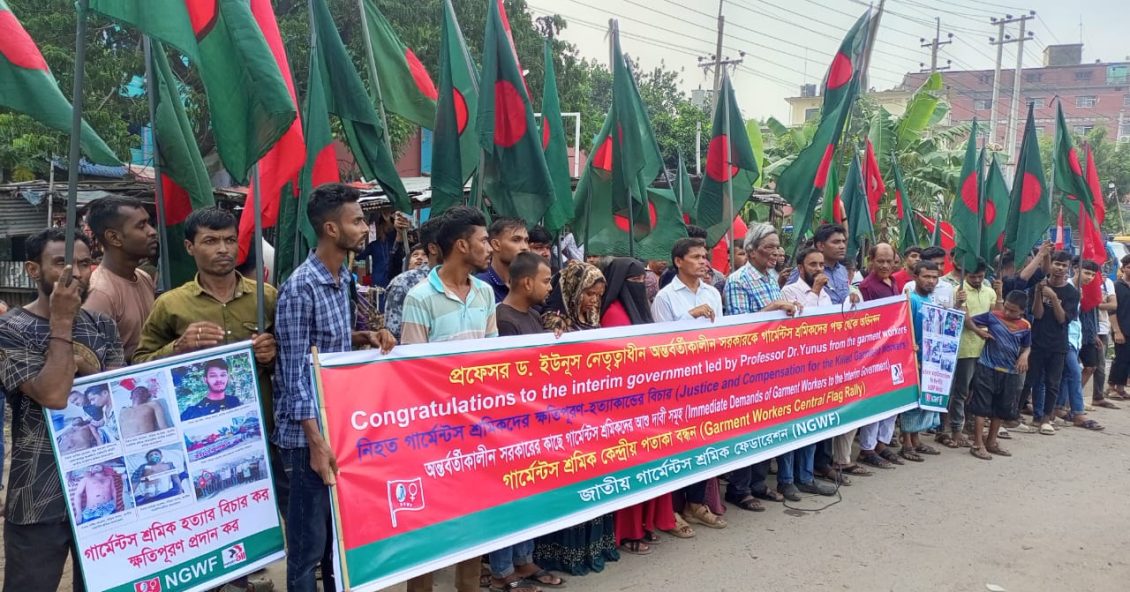Garment workers call for justice in the wake of mass uprising
14.08.24
In early June, hundreds-of-thousands of Bangladeshis took to the streets to protest the government’s reinstatement of a job quota system favouring descendants from the country’s independence war in 1971.Since then, the prime minister has fled the country, and Bangladesh’s Supreme Court rolled back much of the unfair quota system.
However, the government’s violent government response to the protests has resulted in over 560 deaths and an estimated 150,000 total injured. Students and workers have received the brunt of this abuse.
As a signatory to the International Accord, UNI Global Union has a longstanding relationship with the National Garment Workers Federation (NGWF), affiliated to IndustriALL. The NGWF’s members have been greatly affected by this violence. Five federation members have been killed; 50 have been injured and 100 have been arrested.
On behalf of 4.2 million garment workers, the NGWF is calling on the interim government to take the following actions:
- Immediate justice for the killings of 11 garment workers, including five members of the National Garment Workers Federation. The federation wants those responsible for these killings – as well as the murders of other workers – to be held accountable.
- Ensure necessary and advanced medical treatment for all injured garment workers.
- Immediately release, without conditions, all arrested garment workers.
- Arrange proper compensation for the families of killed and injured garment workers.
- Immediately increase the wages set for garment workers and change the term “minimum wage” to “living wage” or “decent wage.”
- Immediately announce a national minimum wage applicable and acceptable for all sectors across the country.
- Immediately introduce a rationing system for 4.2 million garment workers.
- Immediately abolish the separate law for export processing zones (EPZs) and bring EPZs under the country’s existing labour law – where workers will have the right to express opinions, organize and bargain. The federation calls these separate laws unconstitutional and in violation of ILO conventions.
- Reform the current labour laws and Labour Rules in Bangladesh considering ILO Conventions 87 and 98:
- Remove all legal, garment management and social barriers to forming trade unions and conducting trade union activities in Bangladesh’s garment sector.
- Ensure equal wages and equal rights in the family, state, society and in the workplace for women.
UNI’s previous statement about the protests in Bangladesh is here.
News
International Accord
UNI Asia & Pacific


